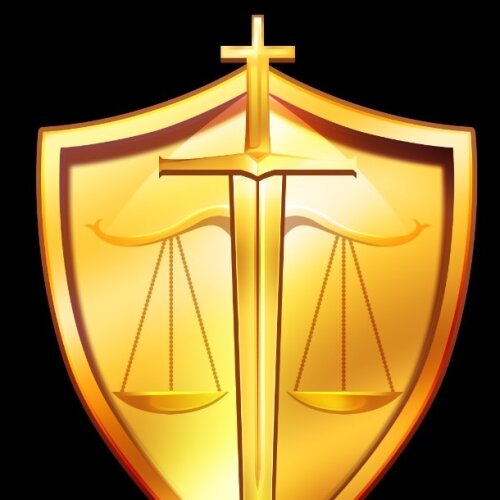Best Cyber Law, Data Privacy and Data Protection Lawyers in Quezon City
Share your needs with us, get contacted by law firms.
Free. Takes 2 min.
List of the best lawyers in Quezon City, Philippines
Philippines Cyber Law, Data Privacy and Data Protection Legal Questions answered by Lawyers
Browse our 1 legal question about Cyber Law, Data Privacy and Data Protection in Philippines and read the lawyer answers, or ask your own questions for free.
- Is it possible for cyber libel if you say someone she a scammer even i have a evidence because she collecting money from us and believing that her business is a legally operated. And we found out that no paper for legalities.. We have evidence screenshot
- Cybel libel caseIs it possible for cyber libel if you say someone she a scammer, even if I have evidence, because she is collecting money from us and believes her business is a legally operated one. And we found out that no paper for legalities.. We have an evidence screenshot
-
Lawyer answer by Recososa Law Firm
Under Philippine law, particularly Article 353 in relation to Article 355 of the Revised Penal Code and Republic Act No. 10175 or the Cybercrime Prevention Act of 2012, libel may be committed online, which is called cyber libel. Libel happens...
Read full answer
About Cyber Law, Data Privacy and Data Protection Law in Quezon City, Philippines
The Republic Act No. 10173, also known as the Data Privacy Act of 2012, governs Cyber Law, Data Privacy, and Data Protection in the Philippines. The Act helps protect the fundamental human right to privacy of all individuals while ensuring the free flow of information for innovation, growth, and continuous operation. It is governed by the National Privacy Commission (NPC) and applies to the processing of all types of personal information.
Why You May Need a Lawyer
Legal assistance can be required in numerous circumstances ranging from identity theft, defamation or slander over the internet, data breach in a company you own or work for, digital copyright and intellectual property disputes, to concern over the privacy of personal data handled by service providers. A lawyer can advise you on next steps, potential liabilities and legal remedies available under the Act. In more serious cases, lawyers can represent you in court or in dealings with the NPC.
Local Laws Overview
The key elements of the Data Privacy Act of 2012 include the requirement for data subjects’ consent prior to data collection; collection and processing limited to what is required by declaration to the data subject; rights to access, correct and erase personal data; data privacy security and protection measures; and criminal penalties for unauthorized processing, access due to negligence, improper disposal, processing for unauthorized purposes, unauthorized access or intentional breach, concealment of security breaches, malicious disclosure, and unauthorized disclosure.
Frequently Asked Questions
1. What entities does the Data Privacy Act apply to?
The Act applies to any natural or juridical person involved in the processing of personal data.
2. What are the penalties for breaching the Act?
Penalties vary from monetary fines to imprisonment, depending on the nature and gravity of the violation.
3. Can I request an organization to delete my data?
Yes, you have the right to erasure or blocking of data as per the Right to be Forgotten under the Act.
4. Can personal data be transferred outside the Philippines?
Yes, but only to countries that meet the adequate data protection standards set by the NPC.
5. Are public authorities subject to the Act?
Yes, the Act applies to both private entities and public authorities which handle personal data.
Additional Resources
The National Privacy Commission (NPC) website provides a wealth of resources, including advisories, circulars, guides for data protection officers, and complaint forms. The Official Gazette of the Republic of the Philippines also provides access to all national laws including the Data Privacy Act.
Next Steps
If you need legal assistance for Cyber Law, Data Privacy and Data Protection, seek a lawyer who specializes in these fields. The Integrated Bar of the Philippines can help you find a suitable lawyer. Be sure to bring all necessary documents related to your case during your consultation, and maintain regular communication with your lawyer to understand your case's progress.
Lawzana helps you find the best lawyers and law firms in Quezon City through a curated and pre-screened list of qualified legal professionals. Our platform offers rankings and detailed profiles of attorneys and law firms, allowing you to compare based on practice areas, including Cyber Law, Data Privacy and Data Protection, experience, and client feedback.
Each profile includes a description of the firm's areas of practice, client reviews, team members and partners, year of establishment, spoken languages, office locations, contact information, social media presence, and any published articles or resources. Most firms on our platform speak English and are experienced in both local and international legal matters.
Get a quote from top-rated law firms in Quezon City, Philippines — quickly, securely, and without unnecessary hassle.
Disclaimer:
The information provided on this page is for general informational purposes only and does not constitute legal advice. While we strive to ensure the accuracy and relevance of the content, legal information may change over time, and interpretations of the law can vary. You should always consult with a qualified legal professional for advice specific to your situation.
We disclaim all liability for actions taken or not taken based on the content of this page. If you believe any information is incorrect or outdated, please contact us, and we will review and update it where appropriate.











